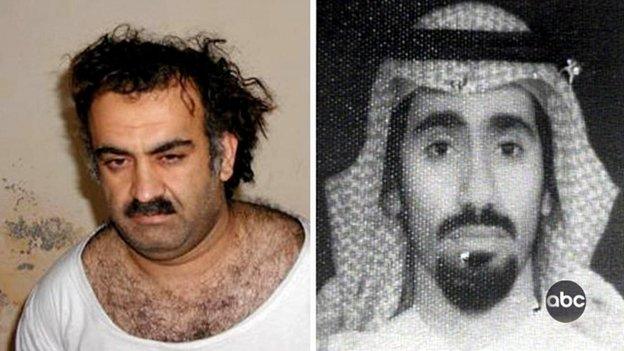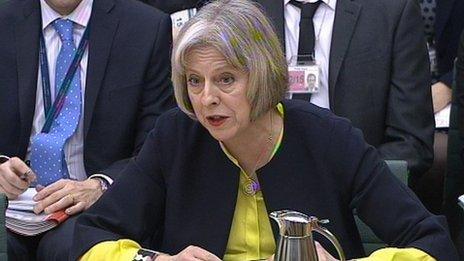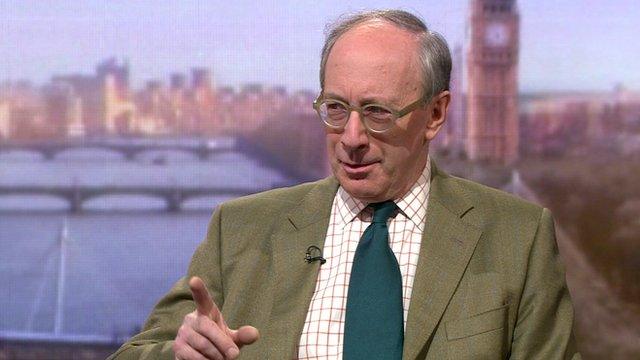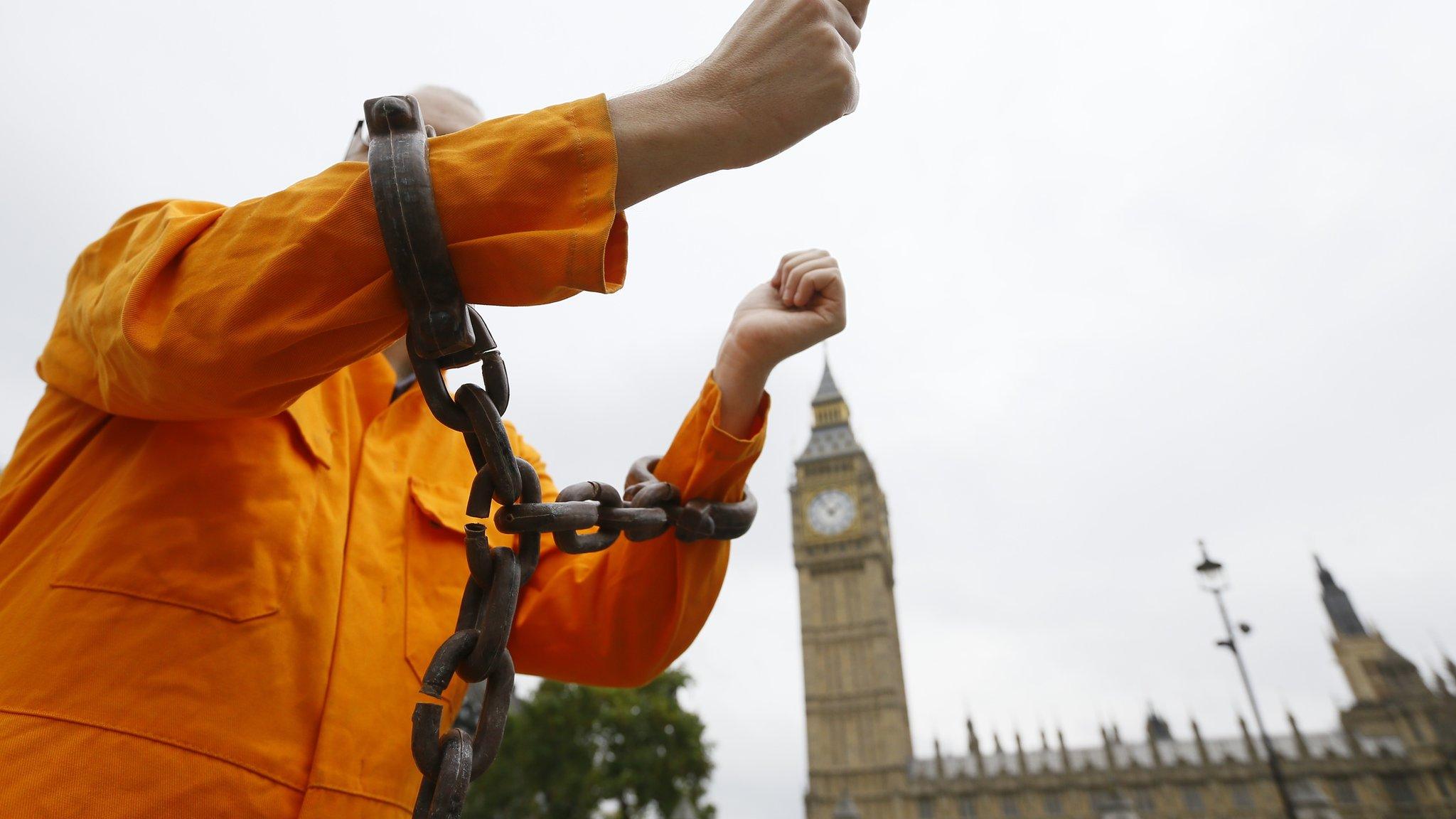Jack Straw: I was 'never complicit' in torture
- Published
Jack Straw MP: "I applied myself assiduously to my legal obligations to ensure human rights were observed"
Former Foreign Secretary Jack Straw has said he was "never complicit" in the illegal rendition or torture of terror suspects during his time in office.
The Labour MP told the BBC he would be "delighted" to give evidence to an inquiry looking at the treatment of detainees by British intelligence agencies in the decade following 9/11.
A US Senate report , externalinto the CIA has found "brutal" treatment of suspects.
Mr Straw said such behaviour was "wrong, full stop".
The UK asked for some material to be removed from the report for national security reasons.
Legal obligations
But Downing Street said no redactions related to British involvement in the mistreatment of prisoners.
Parliament's Intelligence and Security Committee, which is carrying out its own inquiry focusing on the UK's actions, is to ask the United States to hand over any material documenting the UK's role.
Mr Straw told the BBC: "As I've made repeatedly clear, I applied myself assiduously to the legal obligations on me, which were above all to ensure that people's human rights were observed and that any action I took was within the law.
"I was never, ever complicit in people being rendered illegally - still less in their bad treatment or their torture."


Khalid Sheikh Mohammed, left, and Abd al-Rashim al-Nashiri, were among those held by the CIA
CIA misled politicians and public
at least 26 of 119 known detainees in custody during the programme wrongfully held
methods included sleep deprivation for up to 180 hours, often standing or in painful positions
Saudi al-Qaeda suspect Abu Zubaydah was kept confined in a coffin-sized box for hours on end
waterboarding and "rectal hydration" were physically harmful to prisoners
none of 20 cases of counterterrorism "successes" led to unique or otherwise unavailable intelligence

Rendition involves sending someone from one country to another for imprisonment and interrogation that would be illegal in the country doing the rendering.
Mr Straw, who was foreign secretary from 2001 to 2006, said he was never formally briefed by the CIA "about what they were up to" and was only briefed by his US counterpart Colin Powell "later in the day".
"This was us trying to find things out," he said.
"As soon as we learnt about the terrible conditions in Guantanamo Bay, I spent a large amount of my time - in the end successfully - ensuring that all the British citizen detainees were transferred from there and came back to the United Kingdom."
He added: "Did we have anything to do with this? No we didn't. Did we approve of it? Absolutely not.
"I didn't approve of it when I learned of it and I don't approve of it now. Number one, it's wrong. Full stop.
"Number two, as the Senate report itself made clear, torturing people to extract information from them is likely to lead to low grade or inaccurate intelligence.
"But that's not the real reason we object to torture. The real reason we object to torture is because it's torture."
- Published15 December 2014

- Published14 December 2014

- Published14 December 2014

- Published19 December 2013
